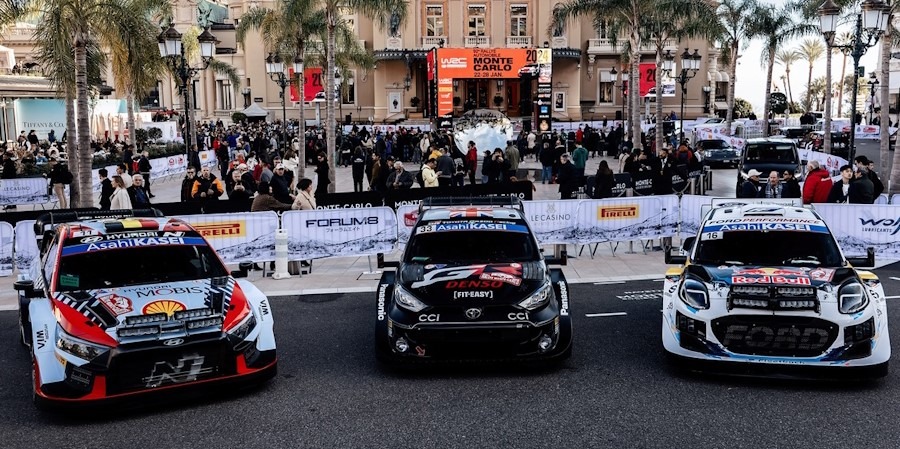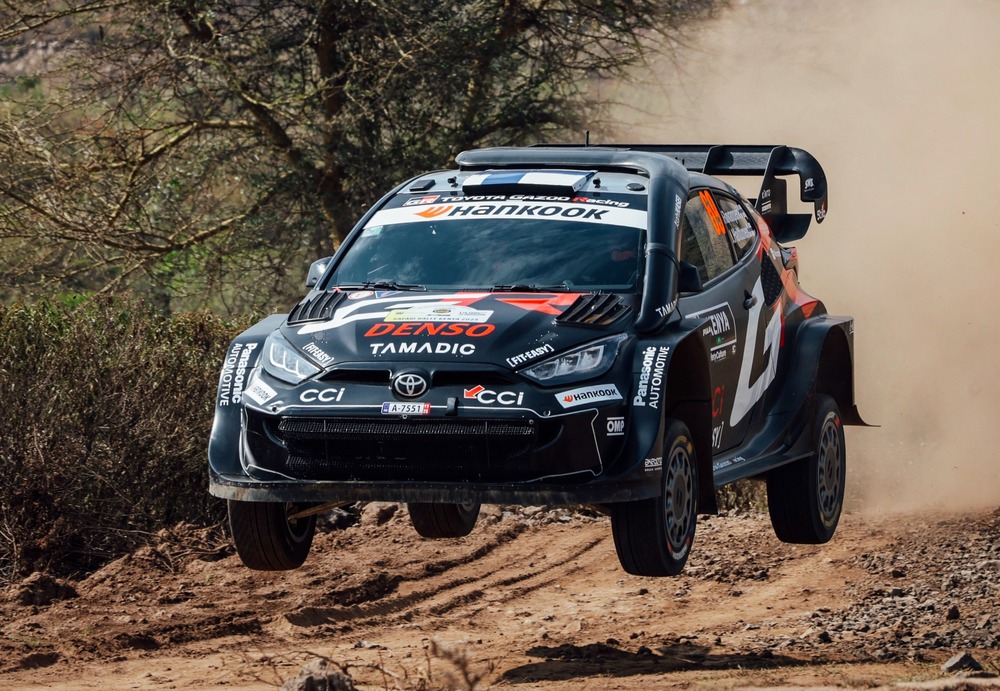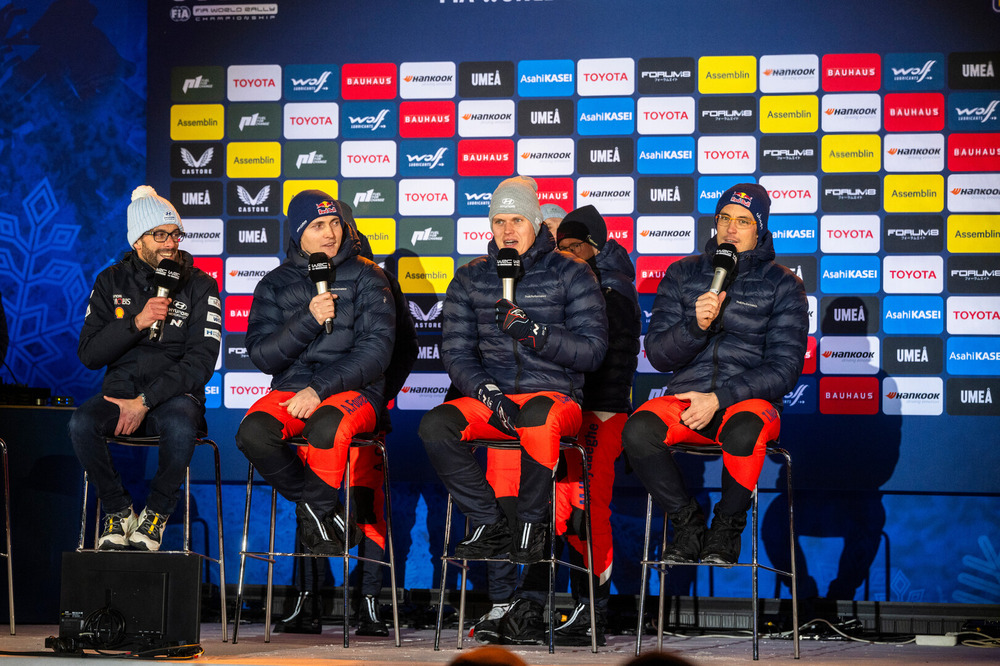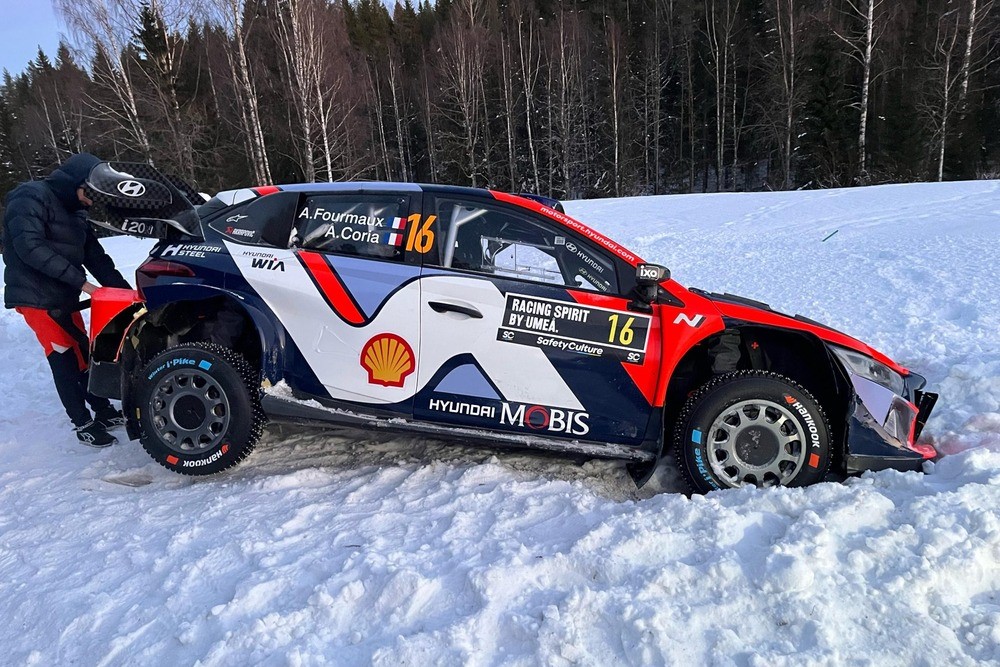The FIA has announced that hybrid Rally1 cars will be allowed to compete in the World Rally Championship until the end of 2026 following the World Motor Sport Council meeting held on Tuesday.
The World Motor Sport Council’s decision on Tuesday overturned the governing body’s announcement on February that hybrids would be faced out in a bid to offer a level playing field between Rally1 cars with lower power and boosted Rally2 cars.
The FIA working group’s proposal from February focused on getting rid of hybrid power on Rally1 cars starting next year. This was part of a move to bring Rally1 cars’ performance closer to that of Rally2 by reducing aero through modifying the rear wing and reducing the air restrictor size.
This was in line with a plan for manufacturers to develop an optional performance upgrade package for Rally2 cars, enabling some competitors to compete at the forefront. It was anticipated to boost entries and facilitate a seamless shift to entirely new technical regulations in 2027.
However, teams and manufacturers strongly objected the changes made to Rally1 and Rally2, which led to a letter being addressed to the FIA in April requesting for the current rules to remain in effect.
The teams’ major concerns were more about the small window of time available to reconstruct, test, and review changes to the cars for the upcoming season, as well as the fact that the current cars had already consumed expenses, slated to compete throughout a five-year homologation cycle [2022–2026].
“Technical stability has been agreed between all stakeholders for the 2025 and 2026 FIA World Rally Championship seasons,” read a statement from the FIA. “The World Council has confirmed that, following extensive feedback and discussions, the WRC Technical Regulations for Rally1/2 cars will remain unchanged for the coming two years.
“All stakeholders are working positively together on the direction of the regulations for 2027 and beyond, and there is a good consensus between the World Council members and the manufacturers on the key targets that are aimed primarily at increasing participation at the highest level as previously set out by the FIA.
“It is a strong expectation of the World Council that the current manufacturers will commit to the long-term future of the sport well in advance. These regulations will be presented for approval at the December meeting of the World Council, allowing more than two year’s lead time for manufacturers to adapt.
“Following a clear pledge to invest from the WRC Promoter, the FIA will strengthen its team across the Commercial and Communications Departments to extend their support for the Promoter and the key stakeholders around the Promotional Working Group.
“There will be a strong focus on managing the sporting regulations following the creation of the WRC Sporting Working Group, with a key emphasis on increasing the opportunities for media activation and reducing the costs for its competitors.
“The final versions of these Sporting Regulations are to be proposed in the October session of the WMSC.”
FIA president Mohammed Ben Sulayem added: “The WRC is hugely important to the FIA, it is the pinnacle of the rally discipline and I have had a lot of conversations with the manufacturers over the past weeks about its future direction.
“It is clear now that we all need to have technical stability for the next two years, but at the same time it is important for the FIA that, in providing this stability, we receive the same positive commitment from the manufacturers.”
The WRC Promoter and teams have responded positively to the decision; the former has described it as a highly critical moment.
“As the WRC Promoter this is a hugely important moment for us,” said WRC Promoter Managing Director Jona Siebel.
“We can move forward with unity and consistency over the next two years from a technical perspective while we are investing heavily in new and exciting ways to grow the fanbase of the sport and deliver for our fans.”
Toyota believes this will save teams money and give them more time to concentrate on the 2027 rules.
“It is very good news because if we think about this cycle the investment which have been made it makes sense to run through a cycle which is normally five years,” said Toyota team principal Jari-Matti Latvala.
“If we had done changes now we would have needed to do a big investment so it is very clever choice to do and concentrate on stability and then do the new regulations for 2027.”
Hyundai has been most negatively impacted by the turmoil, as the automaker was forced to postpone plans to introduce a completely new car by 2025 in order to comply with the current regulations.
“We have worked very closely together with the FIA over the past months,” said team principal Cyril Abiteboul.
“And while we all believe that stability of the technical regulations for 2025 and 2026 is the right thing, the very substantial steps made on the governance will provide for a more unified and positive approach towards the short term improvements and long term breakthroughs that we all agree the sport needs.”
Malcolm Wilson, the M-Sport Ford boss of , expressed satisfaction with the decision for regulatory stability but believes that improvements to the championship’s growth need to be implemented.
“This is a really positive step for us in the coming years,” said Wilson.
“We have seen some good proposals on the promotion side, on the marketing side and the plans for event operations and now the work to make those things happen needs to start.
“And with a consistent proposition on the technical side, I think the scope is there to achieve our ambitious targets for the WRC.”
The FIA also declared that it would continue to work with M-Sport Poland to supply Junior WRC cars exclusively for the Ford Fiesta Rally3 EVO through 2025.





